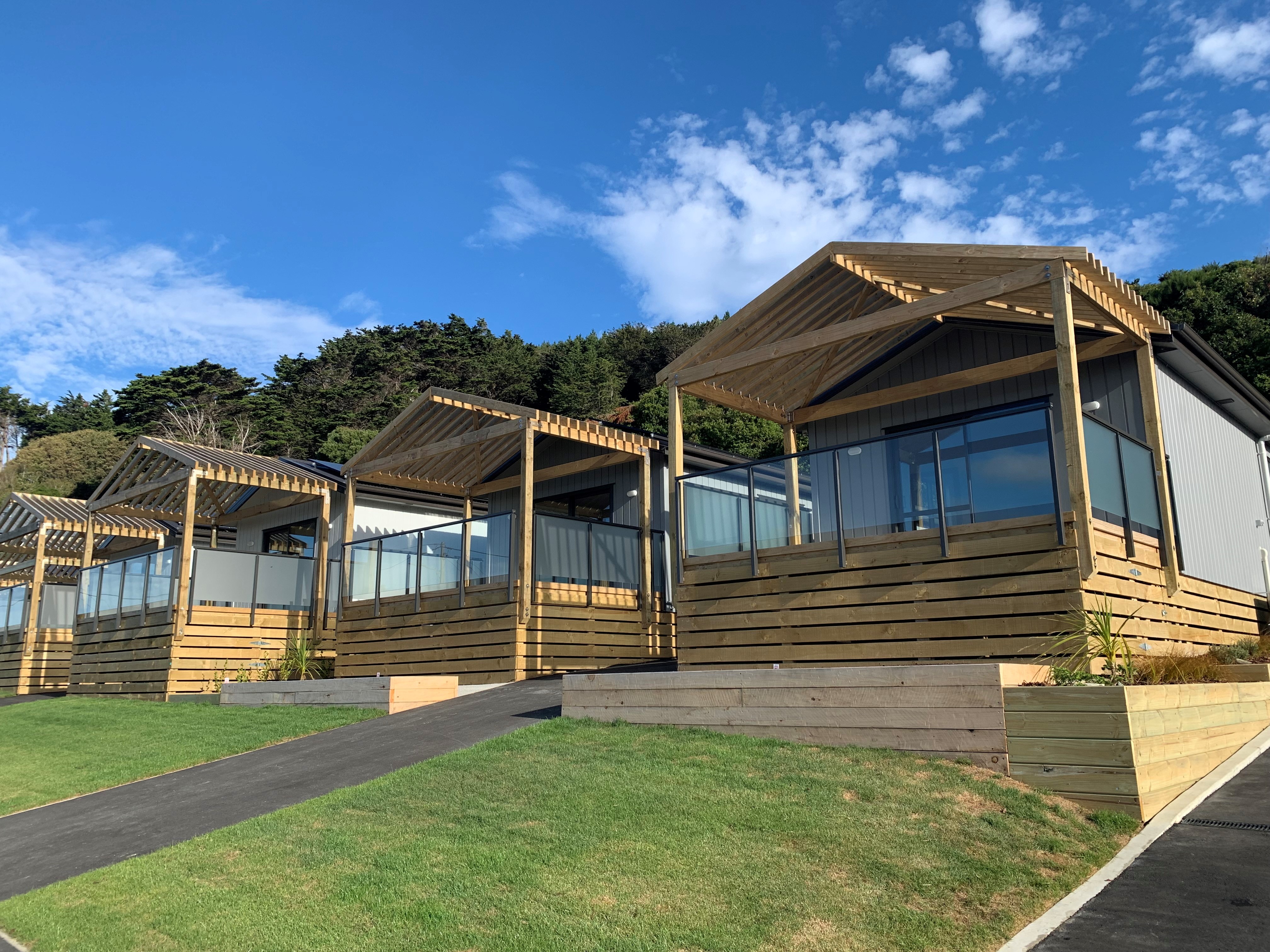New kaumātua housing units realise long-held vision for rūnaka
Apr 5, 2022
5 April 2022
The opening of six new kaumātua (elder) units on Te Rau Aroha Marae at Awarua/Bluff, is the first step towards establishing on-site papakāika (intergenerational) housing and the realisation of a vision the local rūnaka has been working towards for more than 20 years.
The Minister of Housing, Hon. Megan Woods, and Te Upoko o Te Rūnaka o Awarua, Tā Tipene O’Regan, officially opened the new units this morning, with the first kaumātua set to move in next month.
Tā Tipene O’Regan says the plan to establish safe, secure, and affordable housing for Ngāi Tahu kaumātua was first envisioned by rūnaka leaders in the early 2000s.
“We have long dreamt of this development for our people and we’re all very pleased it has been achieved. These six new units will help to bring our whānau back to their tūrakawaewae and support our kaumātua to pass down their mātauraka (knowledge) to our tamariki and rakatahi,” says Tā Tipene.
Te Rūnaka o Awarua built the six units using a combination of its own funding and a $1.898M grant from the Government’s COVID-19 Response and Recovery Fund, administered by Kānoa – Regional Economic Development & Investment Unit. The units form part of He Kāinga Pai Rawa – a research project developing housing strategies and resources to enhance Māori communities across New Zealand.
Groundwork for the kaumātua units started in August 2021, while Laing Properties Ltd built the six 50m2 prefabricated units in Christchurch. These were then trucked to Bluff and placed on sections adjacent to the marae complex.
Te Rūnaka o Awarua Kaiwhakahaere (Chair) Dean Whaanga says the Building Better Home Towns and Cities National Science Challenge research project He Kāinga Pai Rawa has guided the development of the kaumātua housing village.
“Four community researchers worked closely with our kaumātua to develop a bespoke housing plan for our marae. By documenting the process, they have not only helped to create a special community for our whānau, but they can also share our lessons with other iwi and kaupapa Māori organisations throughout Niu Tīreni (New Zealand),” he says.
The researchers will continue to work with kaumātua to gain insights and learn more about the anticipated social and health benefits generated from the project. Aged care services will ensure the kaumātua are well looked after.
“Times are really tough right now for all New Zealanders with record housing prices, increasing living costs, and high inflation putting pressure on budgets. We’re very pleased that this project will provide some of our most vulnerable kaumātua with warm, safe and affordable homes when they need it most.”
A marae is an important place where Māori connect with their whakapapa, whenua, and tīpuna (ancestors). Te Rau Aroha Marae is the southernmost Ngāi Tahu marae and Dean Whaanga believes having kaumātua living onsite will further enrich its value for visiting whānau.
“Our kaumātua are repositories of much of our tīpuna knowledge and we look forward to tapping into that mātauraka more often and sharing weaving, carving, mahika kai, and other traditions with younger generations.”
Dean Whaanga says the rūnaka hopes to eventually build more kaumātua units and, ideally, establish an intergenerational housing community around the marae, where whānau can live while saving to buy their first home.
“To build a complete community around our marae, with our youngest and oldest learning from each other, that would be a truly special achievement for our people, and that is something I hope we can achieve in my lifetime,” says Dean Whaanga.
Media contact: Marcus Gibbs [email protected]
Background:
- Architectural plans and a business case to support the financial viability of the project were funded by the Government’s principal policy advisor on Māori wellbeing and development, Te Puni Kōkiri.
- Te Rūnanga o Ngāi Tahu and Te Rūnaka o Awarua provide a range of additional support to kaumātua and other whānau. This includes rūnaka-owned kaupapa Māori health and social services provider Awarua Whānau Services, based in Murihiku.
